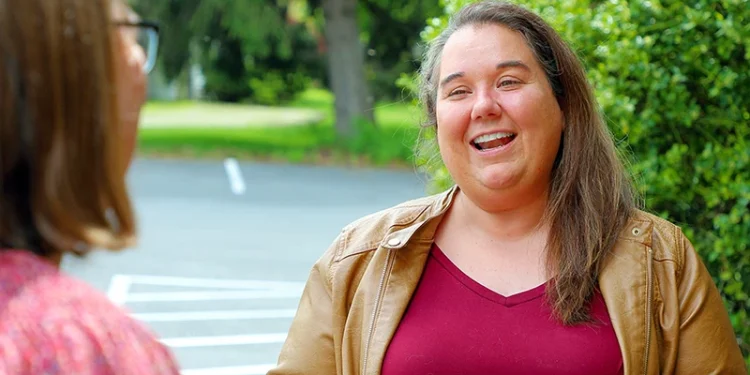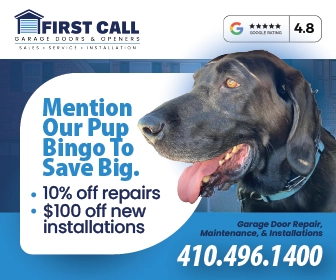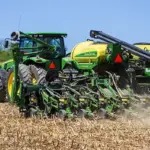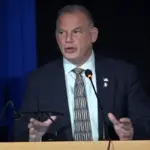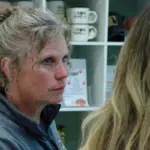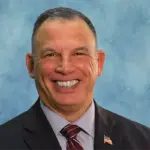Becky Ridgeway, Carroll County 4-H Educator
compiled by Kym Byrnes, photography by Nikola Tzenov
Beyond the Farm: 4-H Leader Embraces Innovative Programs
It’s easy to think of 4-H as farming and kids who spend a lot of time with pigs and cows; for some, that’s what 4-H is all about. But for others, it’s robotics, sports, business skills and leadership training. For anyone involved in 4-H, the Carroll County 4-H & FFA Fair is where a year’s worth of work gets judged. The Fair brings excitement, tears, celebrations and lessons learned. Becky Ridgeway grew up participating in 4-H, and today, she runs the 4-H program in Carroll County. She says she loves that there is a place for every child in 4-H, and she is inspired by watching young people develop self-esteem and confidence through their 4-H projects.
“The Fair is the highlight of the year for 4-H kids; it’s the week they look forward to most. They work all year long on projects that they showcase at the Fair. Carroll County’s Fair is a product of three organizations working together: 4-H, FFA and the Ag Center.” – BECKY RIDGEWAY
When did 4-H start for you?
I grew up in Frederick County where I participated in 4-H. I was in the livestock program — cattle and sheep — and did public speaking, baking and sewing.
I took advantage of almost everything that 4-H offered at that time. My grandparents have a farm in New Market, and they raised cattle, so that is where I started with my first heifer. I showed heifer first and then started with two sheep; 28 years later, we have a flock of 28 sheep that have transitioned to the farm. My roots were planted with showings at the county fair; now we’ve gone national. We travel to Kentucky, Indiana and Massachusetts to show the sheep.
How did you come to be the 4-H educator in Carroll County?
I always knew I wanted to go into the education field; at first, I thought I wanted to be a high school ag teacher. I went to West Virginia University and majored in the agriculture and extension education program. After student teaching and earning my bachelor’s degree, I decided to get my master’s degree in agriculture and extension education. This 4-H position opened up in Carroll County, and I thought it would be a cool position. I wanted to be local and close to my family because we still have our flock of sheep that we started when I was a 4-H’er. I started in this position in 2012 as a faculty extension assistant. In 2017, I got a tenured track position, and now I’m a tenured educator at the University of Maryland.
What do you love about your job?
The kids. I’ve been here long enough now that I’ve had kids from when they were 5 to when they aged out at 18, and seeing their growth is amazing. I can think of kids who were shy at first, but they kept coming to the program, and we watched them develop relationships with other 4-H’ers. Now, they are the ones I can call upon to be leaders, and they are the first to step up. I love seeing that growth. I love seeing the older kids take opportunities for leadership trips. We also help youth interested in judging programs; we get them out there with the ultimate goal that they’ll make the state team and can travel to different places around the country. They know Carroll County, but we can give them opportunities and financially help them explore any opportunity the program has.
What are the challenges of your job?
There’s so much the program offers that sometimes it’s a challenge to offer all the various education programs. Sometimes it’s a challenge to get needed resources because we are a nonprofit, so we depend on donations to run a program.
Who are today’s 4-H’ers?
There is a strong tradition around 4-H in Carroll County. We have a lot of multigenerational 4-H families, but we also have a lot of families that are being exposed to 4-H for the first time. We have traditional 4-H’ers who are strongly rooted in a livestock program, but then we have this other group of kids who are doing robotics, shooting sports programs or rocketry.
How many people participate in 4-H in Carroll County?
Every 4-H member belongs to a community 4-H club. We have 35 community clubs in Carroll County, and last year, we had 822 4-H kids. They go to monthly club meetings to work on their projects, and through those regular meetings, they learn different skills and about different program areas from other kids in their club. We also offer county-wide workshop opportunities throughout the year.
Why is the annual 4-H and FFA Fair important to someone who participates in 4-H?
The Fair is the highlight of the year for 4-H kids; it’s the week they look forward to most. They work all year long on projects that they showcase at the Fair. Carroll County’s Fair is a product of three organizations working together: 4-H, FFA and the Ag Center.
There is a volunteer-run board that oversees a bunch of volunteer committees, and they are all planning all year long to make the Fair the best it can be for both those participating and the broader community that will attend. The Carroll County Extension runs 4-H in Carroll County, and we try to help bolster the Fair by getting more entries.
How does a 4-H’er prepare for the Fair? What time commitment are they making to their 4-H endeavors?
Generally, our 4-H kids are working on a year-long project. Even if they are baking, they will spend months perfecting a recipe, preparing and doing practice runs, and creating a strategy to get their cake in the auction. Then, we have our livestock kids working year-round to raise an animal. They raise that pig all year and make decisions on genetics and breeding. They have to care for her during the entire process, from farrowing the pigs to taking care of those piglets when born.
Then, if everything goes as planned, they have to learn marketing skills and determine where they will sell them and at what price point, and they’ll probably keep a few to show at the Fair to make the livestock sale. So, whether for a cake auction or the livestock sale, kids all have an end-of-year goal for their project.
During the Fair, youths spend time with their animals, caring for them and proudly showing them off. What happens with those animals after the Fair, and how do the kids emotionally handle letting them go?
As a 4-H’er, you know your end goal — to get an animal into a livestock sale where the animal will likely go into the food system. These kids spend many hours every week with that animal, and you form a bond just like you would with a dog or cat. You have emotions, and you care about that animal. Part of what we’re teaching is that it’s OK to have those emotions and feelings that come with caring for an animal.
But we also know that the ultimate goal is to get that animal into the food system, so we teach about good nutrition and how to meet the requirements to make the sale, and not every 4-H’er will make the sale. You will see tears when it comes to that night at the Fair. You’d think kids who go through the process every year would be used to it, but there’s still a bond, and it’s hard to let that animal go. But you know you’ve raised a safe food product to go to the consumer.
Our youth are getting well above market price for their animals, so after the Fair, the kids will buy their animals for next year’s project. They use the money for feed and animal care; some put money away for college or their future.
What compels young people to want to engage in 4-H activities in our tech-centric society?
We’re interactive and inclusive, and there is a spot for every child in the 4-H program. You don’t have to be the family with animals, but we have leasing opportunities if you like that and can’t have one at home. When 4-H’ers come to the program, they are hands-on, leaving with completed projects; we’re not just talking at them.
During the program, you see their self-esteem grow, and they develop the ability to complete something on their own. We’re very focused on youth leadership. We’ve started focusing on using older youth to be teachers, and the younger kids look up to older youth and seem more involved when working with older kids than working with adult teachers. By working with younger kids, the older kids are getting important skills in learning to lead groups and be the teacher.
4-H is open to youth from 5 to 18 years old. There are some limitations on 5- to 7-year-olds. They don’t do the animal science program, but the Fair offers opportunities to exhibit chickens and rabbits. There is a small pet show so that we can incorporate them into programs throughout the year.
When it comes to the Fair, I encourage people to look at the schedule because there are events outside of that traditional Fair week. Come and spend an hour and check out a rocketry contest. We have a growing dog program with a dog show that happens before the traditional Fair week.
The Carroll County 4-H & FFA Fair runs July 27 through Aug. 2 at the Carroll County Agriculture Center in Westminster. View the schedule and learn more at CarrollCountyFair.com.


